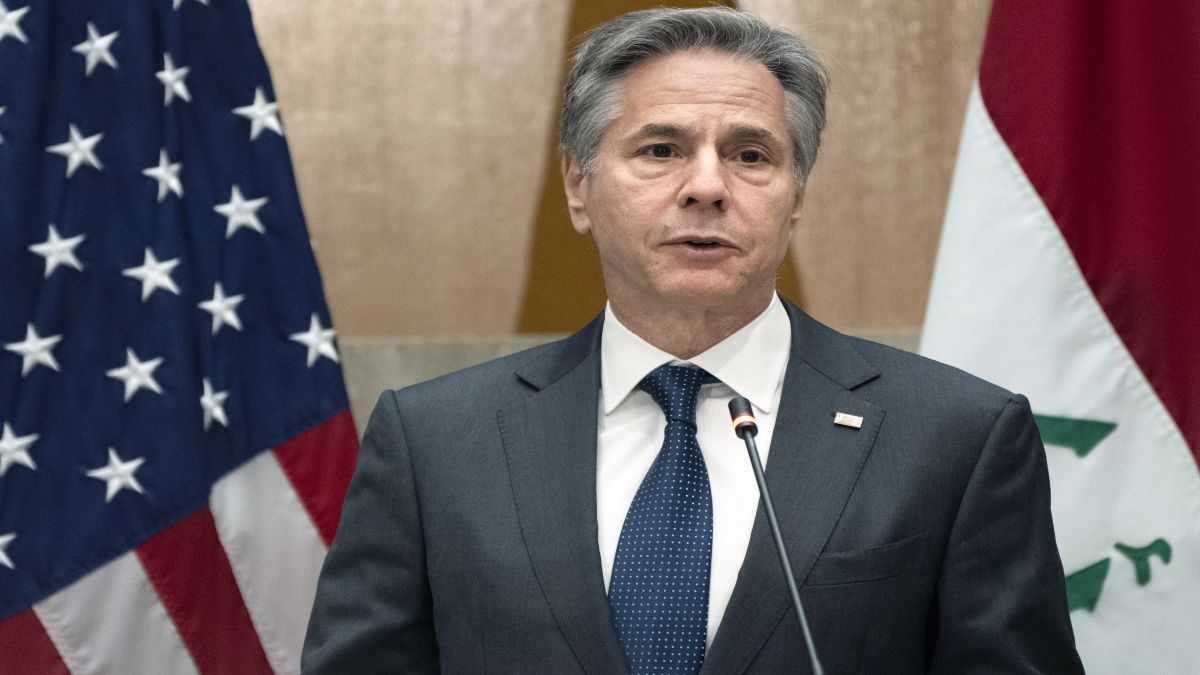The US is planning to impose new sanctions against Iran in response to its attack on Israel, according to National Security Adviser Jake Sullivan.
The sanctions will target Iran’s missile and drone programmes, as well as entities that support the Islamic Revolutionary Guard Corps (IRGC) and the Iranian defence ministry.
Furthermore, Treasury Secretary Janet Yellen stated that the Biden administration would use sanctions “to continue disrupting the Iranian regime’s malign and destabilising activity.”
This move comes in response to Iran's unprecedented air attack on Israel , and the US intends to work with its allies and bipartisan congressional leaders to develop a comprehensive response.
The goal is to strengthen and expand air and missile defence systems across the West Asia, further eroding the effectiveness of Iran’s missile and UAV capabilities.
Here’s what we know about existing measures against Iran. What the US might do next.
What is the scope of the existing US sanctions against Iran?
Washington’s sanctions on Iran already ban nearly all US trade with the country, block the government’s assets in the US and prohibit US foreign assistance and arms sales, according to the Congressional Research Service (CRS).
Thousands of people and companies, both Iranian and foreign, have been targeted under the sanctions program as Washington has sought to constrain Iran’s government and change its behaviour, the CRS said in a report last year.
Impact Shorts
More ShortsUS concerns have included Iran’s nuclear program, human rights abuses and its support for groups the US sees as terrorists.
“US sanctions on Iran are arguably the most extensive and comprehensive set of sanctions that the United States maintains on any country,” the CRS said.
What else can the US do?
Peter Harrell, a former National Security Council official, said US options for further sanctions include targeting the flow of Iranian oil and playing a more aggressive game of “Whac-A-Mole” to go after Iran’s front companies and financiers.
One of the most significant moves would be for Washington to get the European Union and other western allies to impose multilateral sanctions on Tehran, he said, as most of the sanctions in place against Iran currently are US measures.
**Also Read: How Arab nations ‘helped’ Israel fend off Iran’s attack and why it is a big deal**Former President Donald Trump reinstated US sanctions that were eased under an international deal on Tehran’s nuclear program when he withdrew in 2018.
“We have to be realistic that from a US perspective, while there are always more sanctions you can impose, we are in a world of diminishing actual economic pressure because we have so many sanctions already in place,” Harrell said.
What is Congress considering?
House Republican leaders have accused President Joe Biden of failing to enforce existing measures and said they would take up a series of bills to sharpen sanctions on Iran.
Among them is legislation that would increase congressional oversight of sanctions waivers, tighten restrictions on the export of US goods and technology to Iran and require the administration to ensure humanitarian exemptions to the sanctions do not facilitate acts of terrorism or the proliferation of weapons of mass destruction.
There was no immediate indication of when, if ever, any of the measures would become law, which would require passage by the Democratic-led Senate and the signature of Democratic President Joe Biden.
The House late on Monday overwhelmingly passed a bill called the Iran-China Energy Sanctions Act, which would expand sanctions on Iran by requiring annual reports to determine whether Chinese financial institutions have participated in transactions on Iranian oil. It would ban US financial institutions from having accounts for any Chinese entities that engage in those deals.
The bill faces an uncertain future in the Senate.
**Also Read: Explained: America’s big role in countering Iran's attack on Israel**The Democratic-led Senate may consider its own legislation. The Senate Foreign Relations Committee passed a bill on Tuesday that would impose measures on foreign ports and refineries that process oil exported from Iran in violation of US sanctions, after a companion bill passed last year in the House.
The Biden administration has imposed sanctions on hundreds of people and entities in Iran-related action since 2021.
What new measures hold?
US sanctions on Iran have targeted its nuclear capabilities, energy and defence sectors, government officials, banks and other aspects of Iran’s economy:
The US has imposed sanctions on the Atomic Energy Organisation of Iran and other companies it says are linked to Iran’s nuclear program, as well as dozens of banks, including the Central Bank of Iran.
**Also Read: How Israel shielded itself from more than 300 Iranian drones, missiles**Washington has also targeted the National Iranian Oil Company, Ministry of Petroleum and others in an effort to stem revenue Iran receives from its energy sector, and has targeted companies outside Iran — including in China and the United ArabEmirates — over the trade of Iranian petrochemicals and petroleum despite US sanctions.
The US has imposed several sets of sanctions on Iran’s Revolutionary Guard Corps (IRGC), its overseas Quds Force and the Ministry of Defence and Armed Forces Logistics, as well as people and entities it said were associated with them.
Washington has designated the IRGC and Quds Force as Foreign Terrorist Organisations.
Iranian government officials, including President Ebrahim Raisi, have been targeted.
With inputs from Reuters


)

)
)
)
)
)
)
)
)



